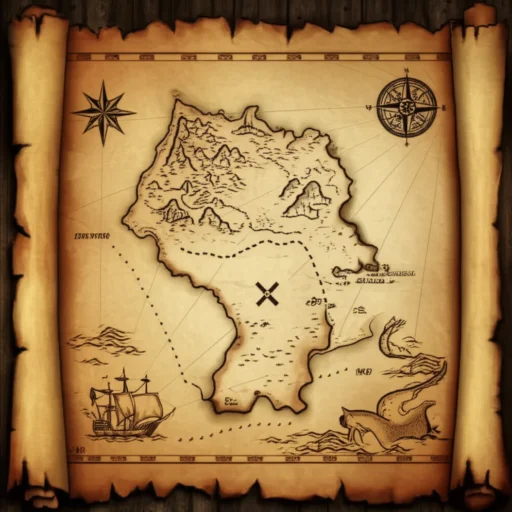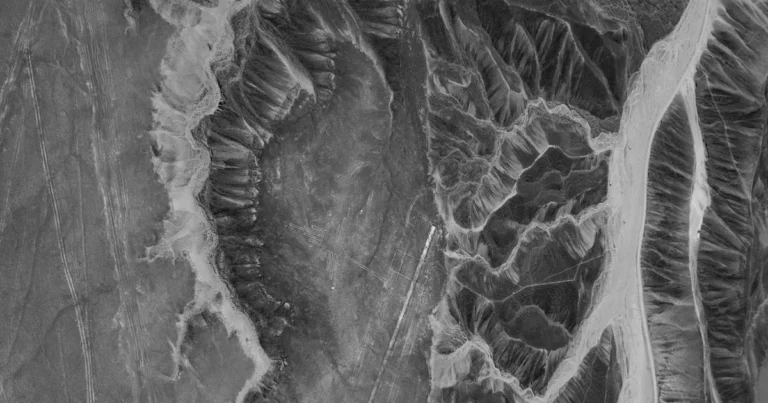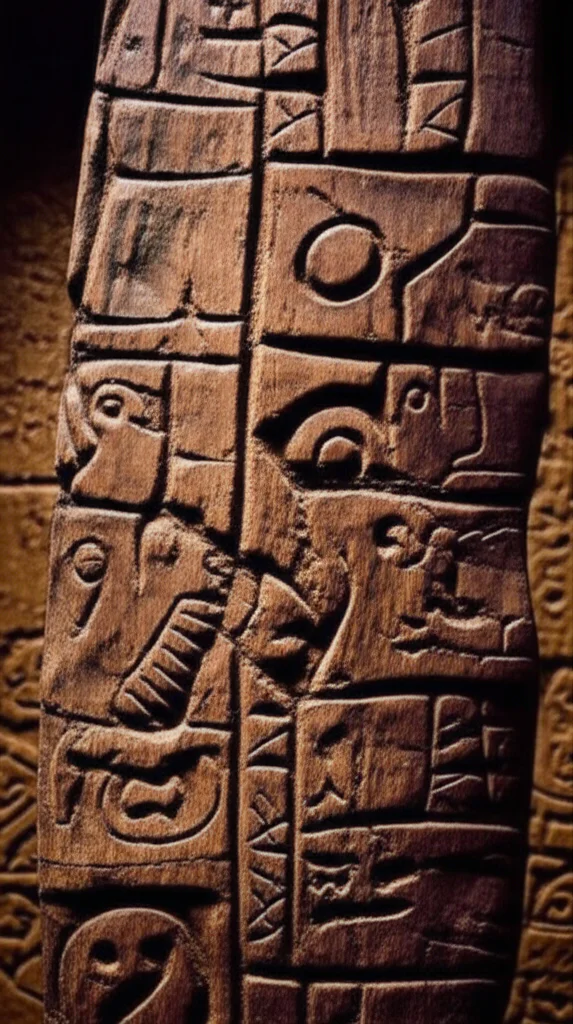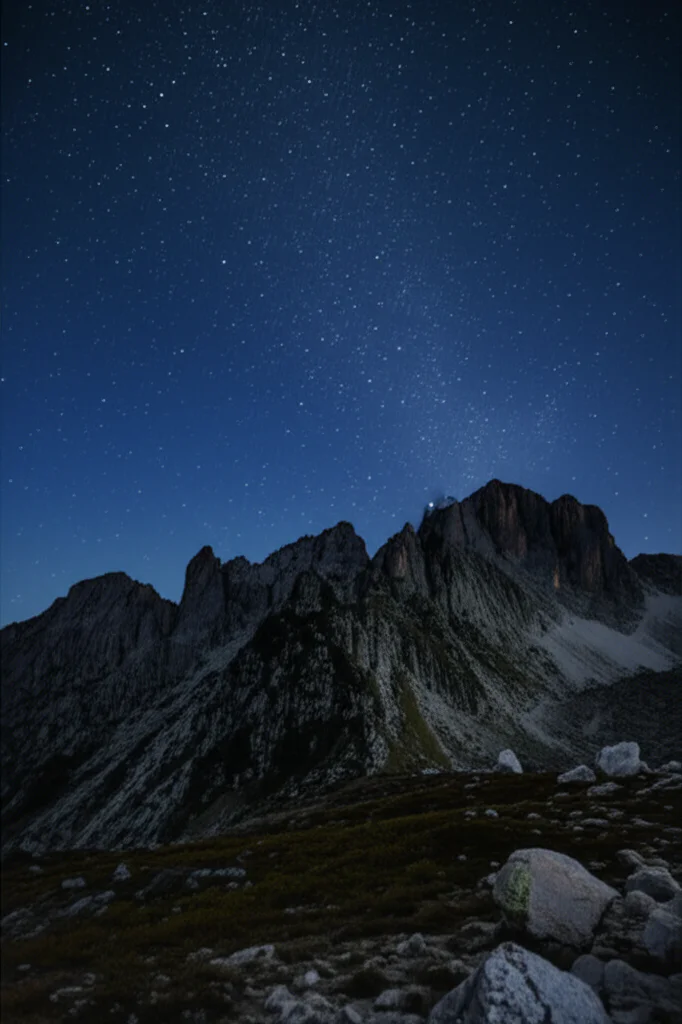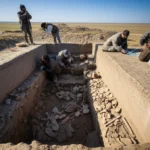Support our educational content for free when you purchase through links on our site. Learn more
Where Is Atlantis Today? 🌊 7 Fascinating Theories Explored (2025)
For centuries, the legend of Atlantis has captivated adventurers, historians, and dreamers alike. But where is Atlantis today? Is it a sunken city lost beneath the waves, a volcanic island shattered by catastrophe, or simply a myth spun by Plato to teach a lesson? In this deep dive, we unravel 7 of the most compelling theories about Atlantis’s possible location—from the volcanic ruins of Santorini to the mysterious formations near Gibraltar and even the enigmatic Eye of the Sahara. Along the way, we separate fact from fiction, explore cutting-edge scientific discoveries, and share why the search for Atlantis still sparks our collective imagination.
Did you know that Plato placed Atlantis “beyond the Pillars of Hercules,” a clue that has sent explorers scouring the Atlantic Ocean for centuries? Or that some believe a massive volcanic eruption wiped out a civilization so advanced it rivaled ancient Athens? Stick around, because by the end, you’ll not only know where Atlantis might be hiding but also why the legend endures as one of history’s greatest mysteries.
Key Takeaways
- Atlantis is most likely a myth inspired by real ancient events, such as the Minoan eruption on Santorini around 1600 BC.
- Plato’s original description places Atlantis beyond the Strait of Gibraltar, fueling Atlantic Ocean theories including sites near Gibraltar, the Azores, and the Bahamas.
- Modern technology like satellite imagery and sonar scans have revealed intriguing underwater formations, but none conclusively prove Atlantis’s existence.
- Popular “Atlantis” resorts and casinos are inspired by the myth but are purely entertainment venues.
- The enduring allure of Atlantis lies in its blend of history, myth, and human curiosity—a symbol of lost knowledge and the quest for discovery.
Ready to explore the seven most fascinating Atlantis theories and uncover what makes each one so captivating? Let’s dive in!
Table of Contents
- ⚡️ Quick Tips and Facts: Your Atlantis Primer
- 📜 The Enduring Mystery: Unraveling the Atlantis Legend
- 🏛️ Plato’s Blueprint: What We Really Know About the Lost City
- 🔍 The Great Atlantis Hunt: Why Finding This Mythical Island Matters
- 🌍 The Most Popular Contenders: Where Could Atlantis Be Hiding Today?
- 1. The Mediterranean’s Embrace: Santorini (Thera) & The Minoan Connection 🌋
- 2. Beyond the Pillars: The Rich Atlantic Candidates 🌊
- 3. Northern European Shores: From Ireland to the North Sea’s Lost Lands 🇮🇪🇩🇪
- 4. The Americas’ Ancient Echoes: Lost Civilizations & Underwater Discoveries 🌎
- 5. The Far-Flung & Fantastic: From Antarctica to the Black Sea’s Depths ❄️🌍
- ❌ Debunking the Myths: What Atlantis Isn’t (and Why It Matters)
- 🛰️ The Science of Search: How Modern Technology Aids the Quest for Lost Cities
- 🕵️♀️ Our Team’s Take: Why We Keep Looking (and What We’ve Learned on the Hunt)
- ✨ Conclusion: The Enduring Legacy of a Lost World and the Human Imagination
- 🔗 Recommended Links: Dive Deeper into the Atlantis Mystery
- 🤔 FAQ: Your Burning Atlantis Questions Answered
- 📚 Reference Links: Our Sources for the Atlantis Saga
Here at History Hidden™, we’ve spent countless hours, fueled by questionable amounts of coffee ☕, chasing whispers of lost cities and forgotten empires. And no legend captures the imagination quite like the tale of Atlantis. So, where is Atlantis today? Is it a glittering resort in the Bahamas, a high-stakes casino in Reno, or a sunken kingdom waiting to be discovered? Let’s dive in, separate fact from fiction, and explore the greatest historical detective story of all time.
⚡️ Quick Tips and Facts: Your Atlantis Primer
Before we plunge into the depths, let’s get our bearings. Here’s the lowdown on the legendary lost city:
| Fact / Theory | The Skinny |
|---|---|
| Primary Source | The only original accounts come from the ancient Greek philosopher Plato in his dialogues Timaeus and Critias, written around 360 BC. |
| Plato’s Location | He placed it “beyond the Pillars of Hercules,” which is widely believed to be the modern Strait of Gibraltar. |
| The Story | A mighty naval power that conquered parts of Western Europe and Africa, it was defeated by ancient Athens and subsequently sank into the sea “in a single day and night of misfortune.” |
| Is It Real? | ❌ Almost certainly not. Most historians and archaeologists believe Plato’s story was a cautionary tale, a philosophical fable about the dangers of hubris and societal decay. |
| Modern “Atlantis” | ✅ The famous resorts, Atlantis Paradise Island in the Bahamas and the Atlantis Casino Resort Spa in Reno, are modern entertainment complexes inspired by the legend. They are not the historical site. |
| Top Historical Candidate | The Greek island of Santorini (ancient Thera), which was devastated by a massive volcanic eruption that crippled the Minoan civilization. |
📜 The Enduring Mystery: Unraveling the Atlantis Legend
Welcome, fellow history sleuths! The quest for the lost city of Atlantis is more than just a search for sunken treasure; it’s a journey into the heart of human curiosity. For centuries, the story has been a siren’s call to explorers, a canvas for dreamers, and a puzzle for scholars. Here on our Folklore and Legends page, we’ve covered countless myths, but none have the staying power of this one. The legend, as detailed in our main Atlantis article, begins and ends with one man: Plato.
But did Plato invent the story whole cloth, or was he drawing on a distant, garbled memory of a real catastrophe? That’s the billion-dollar question, isn’t it? The line between history and allegory is tantalizingly blurry. The story has it all: a utopian society, advanced technology, a cautionary tale of moral corruption, and a cataclysmic end. It’s the ultimate historical ghost story.
🏛️ Plato’s Blueprint: What We Really Know About the Lost City
To find a lost city, you need a map. In this case, our only map is the words of Plato himself. Let’s ditch the Hollywood hype and look at the original blueprint he laid out in his dialogues, Timaeus and Critias.
- Concentric Rings: Atlantis was described as a marvel of engineering, with a central island surrounded by alternating rings of land and water, connected by bridges and a massive canal leading to the sea.
- Riches and Resources: The island was incredibly rich, boasting exotic wildlife (including elephants!), abundant metals like orichalcum (a mysterious metal second only to gold), and a thriving trade network.
- A Mighty Military: The Atlanteans were a formidable naval power with a massive army and a fleet of 1,200 warships.
- The Downfall: Their divine nature weakened as they interbred with mortals. Filled with “unrighteous avarice and power,” they waged war against an alliance of states led by a proto-Athens. After their defeat, earthquakes and floods struck, and the island vanished beneath the waves.
Crucially, Plato gives us a timeframe: He says the events took place 9,000 years before the time of Solon, an Athenian statesman who lived around 600 BC. This places the sinking of Atlantis around 9600 BC. Keep that date in mind… it’s a big sticking point for many theories.
🔍 The Great Atlantis Hunt: Why Finding This Mythical Island Matters
So if it’s just a story, why do we care? Why have brilliant minds, from 19th-century congressman Ignatius L. Donnelly to modern-day geologists, dedicated themselves to the search?
Because the possibility is intoxicating! Finding Atlantis wouldn’t just be finding an old city; it would rewrite our understanding of prehistoric civilization. It would mean that a highly advanced, organized society existed thousands of years before the recognized cradles of civilization in Mesopotamia and Egypt. It would validate one of the most enduring Mythology Stories of all time.
The hunt for Atlantis is a hunt for ourselves—for a lost golden age, for proof that humanity achieved greatness far earlier than we believe. It’s a story of hope, hubris, and the deep, abiding mystery of the ocean.
🌍 The Most Popular Contenders: Where Could Atlantis Be Hiding Today?
Alright, grab your gear, we’re going on an expedition! Over the years, dozens of locations have been proposed. Let’s examine the evidence for the most compelling candidates.
1. The Mediterranean’s Embrace: Santorini (Thera) & The Minoan Connection 🌋
This is, by far, the leading academic theory. The beautiful Greek island of Santorini is the remnant of a much larger island called Thera, which was blown apart by one of the largest volcanic eruptions in human history around 1600 BC.
- The Connection: This eruption effectively ended the dominance of the Minoan civilization on nearby Crete. The Minoans were a sophisticated Bronze Age culture with advanced art, architecture, and a powerful navy—sound familiar?
- The Evidence:
- ✅ A Real Cataclysm: A powerful civilization was genuinely wiped out by a sudden, watery catastrophe.
- ✅ Archaeological Gold: The excavation at Akrotiri on Santorini reveals a remarkably well-preserved Minoan city, buried in ash like a Greek Pompeii.
- ✅ Tsunami Evidence: Geological studies show the eruption triggered a massive tsunami that would have devastated coastal communities across the Mediterranean.
- The Problem: The timeline is way off. The Minoan collapse happened around 1600 BC, not 9600 BC. Proponents argue Plato (or his source) may have added an extra zero, making 900 years into 9,000. Also, Santorini is inside the Pillars of Hercules, not beyond them.
The excellent documentary embedded above, “Atlantis Found: The Search for the Lost City” by the HISTORY channel, provides a fantastic deep dive into the Santorini theory, exploring the volcanic evidence and sonar scans. You can watch it right here at #featured-video.
2. Beyond the Pillars: The Rich Atlantic Candidates 🌊
For the purists who stick to Plato’s “beyond the Pillars of Hercules” clue, the Atlantic Ocean is the only place to look.
2.1. Near Gibraltar: The Strait’s Sunken Secrets 🇪🇸🇲🇦
Some researchers, like Rainer W. Kühne, have focused on the area just outside the Strait of Gibraltar. They point to the salt marshes of Doñana National Park in southern Spain.
- The Theory: Satellite photos show what appear to be rectangular structures and concentric rings buried in the marshland, which was once an open sea. The theory suggests a tsunami wiped out a city here, burying it in silt.
- The Evidence: Researchers have found evidence of multiple tsunamis hitting the Spanish coast. The “memorial cities” found in the area could have been built by survivors.
- The Problem: The structures seen on satellite images could be natural formations or from a later, known Roman or Moorish period. Definitive proof of a Bronze Age super-city is still missing.
2.2. The Azores & Canary Islands: Volcanic Vestiges of an Ancient Civilization? 🇵🇹🇪🇸
These island chains are the peaks of massive underwater mountains. Could they be the last surviving remnants of a larger, sunken landmass?
- The Theory: Ignatius Donnelly, the “father” of the modern Atlantis craze, believed Atlantis was a mid-Atlantic continent, and these islands were its mountain peaks.
- The Evidence: Not much, sadly. While geological studies confirm the volcanic nature of the islands, there’s no evidence of a large, sunken continent in the Atlantic. Modern ocean floor mapping and plate tectonics have largely debunked this.
2.3. The Bimini Road: A Caribbean Conundrum or Natural Formation? 🇧🇸
Off the coast of Bimini in the Bahamas lies a submerged rock formation that looks remarkably like a man-made road or wall.
- The Theory: Proponents, often linked to the psychic Edgar Cayce who predicted Atlantis would be found here, claim this is a remnant of Atlantean civilization.
- The Evidence: The stones are arranged in a neat, linear fashion.
- The Problem: ❌ Geologists are almost unanimous in their conclusion that the Bimini Road is a natural formation of beachrock that has fractured in a regular pattern.
2.4. Richat Structure (Eye of the Sahara): A Desert Oasis or Plato’s City? 🇲🇷
This one has gained massive traction on the internet. The Richat Structure in Mauritania is a stunning geological formation that looks like a giant bullseye from space—a series of concentric rings.
- The Theory: The dimensions and layout of the “Eye” uncannily match Plato’s description of the city of Atlantis. The theory posits that the area was once green and fertile, with rivers flowing to a nearby sea.
- The Evidence: The visual match is compelling. Geological studies show the area has experienced significant climatic shifts.
- The Problem: Geologists identify the structure as a natural geologic dome that has eroded over time. There is zero archaeological evidence of a major settlement ever existing there. Furthermore, Plato describes a city built by people in concentric rings, not a city that is a natural formation.
3. Northern European Shores: From Ireland to the North Sea’s Lost Lands 🇮🇪🇩🇪
Could Atlantis have been a northern legend? Some theories point to places like Ireland or Doggerland, a now-submerged landmass that once connected Britain to mainland Europe.
- The Theory: Proponents like Jürgen Spanuth argued that a northern cataclysm, perhaps a comet impact, inspired the legend.
- The Problem: These theories require a significant re-interpretation and relocation of Plato’s entire narrative, ignoring key geographical clues.
4. The Americas’ Ancient Echoes: Lost Civilizations & Underwater Discoveries 🌎
The idea that Atlanteans fled their sinking home and founded the civilizations of the Americas (like the Maya and Inca) was a cornerstone of Ignatius Donnelly’s work.
4.1. Yucatán Peninsula: Mayan Mysteries & Submerged Structures? 🇲🇽
Underwater sinkholes (cenotes) and coastal discoveries in the Yucatán have fueled speculation about lost cities.
4.2. Cuba’s Underwater City: A Digital Discovery or Geological Wonder? 🇨🇺
In the early 2000s, sonar scans off the coast of Cuba revealed symmetrical, stone-like structures deep underwater. The story made headlines but has since gone cold, with many suspecting they are unusual but natural rock formations.
5. The Far-Flung & Fantastic: From Antarctica to the Black Sea’s Depths ❄️🌍
And now for the truly out-there theories!
5.1. Antarctica: A Frozen Past for a Warm Civilization? 🇦🇶
This theory relies on the idea of “crustal displacement,” a fringe geological concept suggesting the Earth’s entire crust shifted, moving a temperate Atlantis to the South Pole where it was flash-frozen. There is no scientific evidence to support this.
5.2. The Black Sea: A Deluge of Legends and Sunken Settlements? 🇹🇷🇬🇪
Around 5600 BC, the Mediterranean Sea breached the Bosporus Strait, catastrophically flooding what was then a freshwater lake, creating the Black Sea. This very real, massive flood could have inspired deluge myths, but a direct link to Plato’s Atlantis is tenuous.
5.3. Indonesia’s Gunung Padang: A Prehistoric Puzzle with Atlantean Ties? 🇮🇩
The controversial archaeological site of Gunung Padang in Indonesia has been claimed by some to be a man-made pyramid dating back over 10,000 years, tying it to the Atlantean timeline. Mainstream archaeology, however, dates the site to a much more recent period.
❌ Debunking the Myths: What Atlantis Isn’t (and Why It Matters)
With so much speculation, it’s easy to get lost. Let’s clear the water on a few things:
- It’s not a continent in the middle of the Atlantic. Plate tectonics, the science of how continents move, makes this a geological impossibility.
- It wasn’t powered by crystals or aliens. These are modern additions to the myth, popularized in New Age beliefs and fiction. Plato mentions no such thing.
- It’s not the Atlantis Resort in the Bahamas. While a fantastic vacation spot, the Atlantis Paradise Island is a modern creation. As their website shows, you’re more likely to find a major basketball tournament there than a lost civilization.
- It’s not the Atlantis Casino in Reno. The award-winning Atlantis Casino Resort Spa offers a “Forbes Four-Star Spa” and “dynamic casino action,” but no orichalcum.
Distinguishing between the philosophical myth and modern entertainment is key. The legend has become a powerful brand, but the historical mystery remains separate.
🛰️ The Science of Search: How Modern Technology Aids the Quest for Lost Cities
The modern Atlantis hunter has an incredible toolkit that would have made Ignatius Donnelly’s head spin!
- Satellite Imagery: Services like Google Earth have allowed armchair archaeologists to spot anomalies from space, like the concentric rings of the Richat Structure.
- Side-Scan Sonar: This technology paints a picture of the seafloor, revealing shapes that could be man-made, like the formations off Cuba or potential harbor works near Gibraltar.
- Magnetometry: Detects variations in the Earth’s magnetic field, which can indicate buried structures or metallic objects.
- Submersibles and ROVs: Remotely operated vehicles can explore depths no human diver could reach, sending back high-definition video from the abyss.
While technology hasn’t found Atlantis, it has helped us map our world in unprecedented detail, eliminating some possibilities and highlighting others for future exploration.
🕵️♀️ Our Team’s Take: Why We Keep Looking (and What We’ve Learned on the Hunt)
Here at History Hidden™, we’ve had some spirited debates over this. Is it a fool’s errand? A waste of time? We don’t think so.
Our take? Plato’s Atlantis is almost certainly a myth. It’s a brilliant piece of political and philosophical fiction designed to glorify his own city, Athens, and warn against the dangers of imperial overreach.
However, we believe the myth was likely inspired by real events. The memory of the Thera eruption and the collapse of the Minoan civilization could easily have been passed down through generations, becoming more and more embellished until it reached Plato, who then masterfully wove it into his own narrative.
The search for Atlantis, even if it fails to find a specific city, is never a waste. It leads to real discoveries: sunken Roman ships, submerged prehistoric settlements, a deeper understanding of tsunamis and volcanoes. The quest itself pushes the boundaries of exploration and science. It reminds us that the ocean still holds secrets, and that our own history is a vast, unfinished puzzle. And that, for any historian, is the greatest treasure of all.
✨ Conclusion: The Enduring Legacy of a Lost World and the Human Imagination
So, where is Atlantis today? After our deep dive into history, geology, mythology, and modern technology, the answer remains as elusive as ever. Atlantis, as Plato described it, almost certainly never existed as a real city or continent. Instead, it stands as a powerful allegory—a cautionary tale about pride, power, and the fragility of civilizations.
Yet, this myth has sparked genuine archaeological and geological investigations that have enriched our understanding of ancient cultures and natural disasters. The Minoan eruption on Santorini, the catastrophic flooding of the Black Sea, and submerged prehistoric settlements all hint at real events that may have inspired the legend.
Modern Atlantis-themed resorts like the Atlantis Paradise Island in the Bahamas and the Atlantis Casino Resort Spa in Reno are celebrations of the myth’s enduring allure, but they are entertainment venues, not archaeological sites.
In the end, Atlantis is less about a physical location and more about the human imagination—our yearning for lost knowledge, our fascination with mystery, and our hope that beneath the waves lies a story waiting to be told. Whether you’re a skeptic or a believer, the legend of Atlantis continues to inspire exploration, creativity, and wonder.
🔗 Recommended Links: Dive Deeper into the Atlantis Mystery
Ready to explore more or add some Atlantean lore to your bookshelf? Here are some top picks:
-
The Atlantis Blueprint: Unlocking the Ancient Mysteries of a Long-Lost Civilization by Colin Wilson & Rand Flem-Ath
Amazon -
Atlantis: The Antediluvian World by Ignatius L. Donnelly (classic foundational text)
Amazon -
The Lost City of Atlantis: A History of the Legend by Gavin Menzies
Amazon -
👉 Shop Atlantis-themed books and documentaries:
🤔 FAQ: Your Burning Atlantis Questions Answered
What evidence supports the existence of Atlantis today?
The strongest evidence supporting Atlantis is indirect and circumstantial. The Minoan eruption on Santorini, which devastated a sophisticated Bronze Age civilization, is often cited as a real event that might have inspired the myth. Geological evidence of ancient tsunamis and submerged settlements around the Mediterranean and Atlantic coasts also provide context for stories of lost lands. However, no definitive archaeological evidence of Atlantis itself has ever been found.
Have any recent discoveries been linked to Atlantis?
Recent sonar scans off Cuba revealed unusual underwater formations, sparking speculation about Atlantean ruins, but experts largely agree these are natural rock formations. Similarly, satellite images of the Richat Structure in Mauritania have intrigued enthusiasts but lack archaeological proof. Advances in underwater archaeology continue to uncover ancient shipwrecks and settlements, but none conclusively tied to Atlantis.
Could Atlantis be located underwater or on land?
Plato’s description places Atlantis beyond the Pillars of Hercules (modern Strait of Gibraltar), suggesting an island or landmass now submerged underwater. Some theories propose Atlantis was a real island destroyed by natural disasters, now underwater. Others suggest it was a landmass on the continental shelf, lost due to rising sea levels after the last Ice Age. There are also land-based candidates like the Richat Structure, but these lack conclusive evidence.
What theories explain the disappearance of Atlantis?
The most accepted theories for the disappearance of Atlantis-like civilizations involve natural catastrophes such as volcanic eruptions, earthquakes, tsunamis, or rapid sea-level rise. The Minoan eruption on Santorini is a prime example. Other theories include massive flooding events like the Black Sea deluge. Some fringe theories propose crustal displacement or comet impacts, but these lack scientific support.
Are there any modern cities believed to be built on Atlantis ruins?
No credible archaeological evidence supports the idea that modern cities are built atop Atlantis ruins. Some speculative claims exist, but none withstand scholarly scrutiny. Cities like Cádiz in Spain or parts of the Mediterranean have ancient origins but are not linked to Atlantis.
How do historians and archaeologists view the Atlantis legend?
Most historians and archaeologists view Atlantis as a myth or allegory created by Plato to illustrate philosophical points about society and governance. While inspired by real events, the story is not considered a historical account. The search for Atlantis is often seen as a blend of myth, pseudoscience, and genuine archaeological curiosity.
What ancient texts mention the location of Atlantis?
Plato’s Timaeus and Critias are the only ancient texts that describe Atlantis in detail. Other ancient writers mention Atlantis only indirectly or not at all. Later writers like Pliny the Elder and Strabo discuss lost lands but do not provide concrete details matching Plato’s account.
📚 Reference Links: Our Sources for the Atlantis Saga
- Plato’s Dialogues Timaeus and Critias (Project Gutenberg)
- Proposed Locations for Atlantis – Wikipedia
- Atlantis Paradise Island Official Website
- Atlantis Casino Resort Spa Official Website
- National Geographic: The Minoan Eruption and Atlantis
- Smithsonian Magazine: The Search for Atlantis
- History Hidden™ Folklore and Legends Category
- History Hidden™ Mythology Stories Category
We hope this comprehensive guide has illuminated the murky waters surrounding Atlantis and inspired you to keep exploring the mysteries of our past. After all, history is not just about what we know—it’s about what we seek to understand. 🌊🔎
